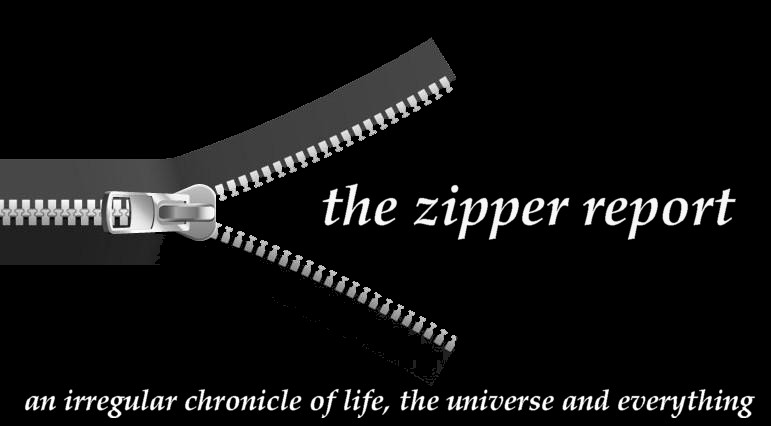It may be only one swan and not seven - and a plastic one, at that. But I'm thankful for it, anyway; because it's given me a chance to talk about one of British television's greatest treasures.
If I were to ask you to name the longest-running situation comedy on TV, you'd probably say SEINFELD or MASH or even I LOVE LUCY. But you'd be wrong in every case. It's BBC's LAST OF THE SUMMER WINE, the 37-year-old saga of a group of senior citizens enjoying their second childhood as much as they did their first.
Set in the picturesque landscape of West Yorkshire, the show is simple in concept (with characters and plot lines to match). But it's rich in warmth and local lore and regional humour and has become a showcase at one time or another for just about every veteran actor in Britain - male or female, comic or dramatic.
For the first three decades of its run, the show centred around the antics of an amiably dotty widower named Norman Clegg (played with deceptive nonchalance by Peter Sallis), a lovably shiftless scruff known as "Compo" (played by Bill Owen) and the intimidating widow nextdoor, Nora Batty (Kathy Staff).
Cleggie and Compo always had a partner in their adventures, someone whose job it was to help get them into trouble and then out again - the last of these being Herbert Truelove (or Truly Of The Yard), a retired copper played by Frank Thornton who was Captain Peacock on ARE YOU BEING SERVED.
The impressive depth of talent in the rest of the cast may have had a lot to do with creating the program's longevity and its seemingly universal appeal.
Howard (Robert Fyfe) is Clegg's neighbour who's always scheming to escape his domineering wife, Pearl (Juliette Kaplan) in order to rendez-vous with his wonderfully tarty girlfriend, Marina (Jean Fergusson). But there's no need to post a warning about Adult Content, since Howard and Marina suffer from the worst case of coitus interruptus on record. They only have to intone those magic words: "Oh, Howard!" "Oh, Marina!" and "Oh, heck!", there's Pearl.
My own heartthrob, though, is Auntie Wainwright (Jean Alexander), the fiendishly unscrupulous junk merchant who always manages to sell people things they never knew they wanted. Once, when she asked Compo if he was at her shop to buy or sell, he said, "What's the difference?" Auntie rubbed her hands with gleeful anticipation and replied, "About 75 per cent."
Longtime fans of SUMMER WINE tend to divide its history into two periods: The Compo and Post-Compo Eras. And you'll hear endless arguments about whether or not the show should have died in 2000 when Bill Owen did.
But I'm not one of those.
Life moves on... and so does comedy. And even now, at the launch of its latest season, the show still has legs and still features a remarkable number of its original characters. Even more remarkably, it has the same writer it's always had (Roy Clarke) and the same producer/director, as well (Alan J. W. Bell)!
I have a reasonably large collection of taped episodes that I find myself watching over and over again. And THE SWAN MAN OF ILKLEY, a show from the 2005 season, has become one of my favourites.
Lenny (played by Bobby Ball) has recently retired from the pickle factory and written an autobiography. As we meet him, he's setting out to sail a leaky, inflatable swan down the canals to Ilkley, thus making a grand entrance and securing for himself the title, "Swan Man Of Ilkley".
But he's not just swanning about. The purpose behind his journey is to advertise his book. However, when Clegg and Truly want to know what the book's about, Lenny has to admit it's about 40 years of working at a pickle factory. But he reasons that if he calls it 'The Swan Man Of Ilkley', it'll sell a lot more copies.
Currently appearing on ITV in THE FATTEST MAN IN BRITAIN (not as the fattest man but as his agent), Ball is one of those veteran British comics who's found a comfortable niche in SUMMER WINE, having appeared in two episodes since SWAN MAN. His natural ability to combine sarcasm with innocence makes him funny but likable - the perfect model of that mad, merry uncle that every family has.
In SWAN MAN, while he's still reeling from his first confrontation with the indomitable Mrs. Batty, her new neighbour Alvin (Brian Murphy) tells him, "I'm teaching her line-dancing." Ball furls his bushy eyebrows and mutters, "Wouldn't teaching her to smile be better?"
And smiling is what LAST OF THE SUMMER WINE is all about.
If it's an acquired taste, it's a taste that doesn't take long to acquire. So, if you happen to have VISION TV on your Canadian cable service or a PBS station near you in the U.S., I whole-heartedly recommend it as a break from the otherwise hectic pace of the Holidays.
And, as a writer, I can tell you that Lenny was right to choose the title he did for his autobiography. Because writers like Lenny and I know that, no matter what people may say, they always judge a book by its cover!
(Scroll down for any days of THE TWELVE DAYS you may have missed. Tomorrow: EIGHT MAIDS A-MOOING.)













.jpg)
